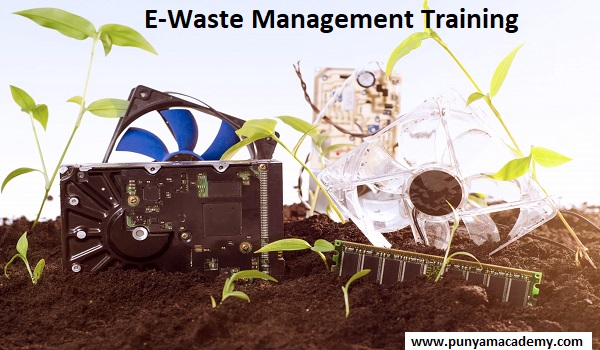What Are The E-waste Management Types, Examples, Challenges And Regulations?
- - Category: Online Education
- - 01 Dec, 2023
- - Views: 103
- Save
What are the E-Waste Management Types, Examples, Challenges and Regulations?

E-waste management is critical for constructing a sustainable future. Handling and managing electronic garbage such as phones, computers, tablets, and other devices is referred to as e-waste management. E-waste is currently the fastest-growing waste stream on the planet, so we must discover solutions to manage it before it is too late. Every year, around 50 million tons of e-waste are generated.
With technology like cell phones becoming increasingly popular, it's logical to predict that this figure will only climb in the future years. This is why we must start looking for proper ways to manage our e-waste today before it becomes a greater problem. To limit the quantity of e-waste produced, organizations are attempting to manage it through correct disposal procedures, recycling, and even fixing damaged equipment.
What are the Types and Examples of E-Waste Management?
E-waste is any sort of electronic garbage that is no longer sought or needed. This term can apply to a wide variety of goods, including cell phones, computers, tablets, game consoles, televisions, and other similar gadgets.
Nowadays, new technology is released virtually every day, rendering previous equipment outdated. This is why we're witnessing a big increase in e-waste, which we need to start addressing as soon as feasible.
Aside from taking up a lot of room, e-waste might be dangerous. Many electronic equipment, for example, contain metals like lead and mercury to keep the electronics running. However, if you do not properly dispose of the devices, these components may leach into the environment and harm the ecosystem.
Most people are using electronic things and throwing the old instruments, but now is the perfect time to strongly point up the importance of E-waste.
What are the E-Waste Management Challenges?
There are numerous problems with managing e-waste that make it difficult for organizations to implement it. While these are difficult difficulties, organizations must overcome them to build an effective and efficient workflow for handling e-waste. Here are some of the major issues that businesses face today in e-waste management:
- Ignorance of the significance of effective e-waste management inside an organization
- In some regions, there is inadequate infrastructure for managing e-waste.
- Modern electronics have a limited lifespan.
- Inadequate legislation and enforcement by local governments
Regulations on E-Waste Management
Many governments and territories have developed e-waste management standards that businesses must follow to counteract the challenges that e-waste can bring. Regulations may differ depending on your state, country, or region. However, below are some of the important global legislations governing e-waste management.
Environmental Protection Agency (EPA): The Environmental Protection Agency in the United States has a set of e-waste management regulations in place for businesses to follow. These regulations specify how to properly manage various types of e-waste.
Furthermore, each state has its own e-waste management rules that must be followed before beginning operations.
Waste from Electrical and Electronic Equipment (EU)
The analogous law in the EU is known as the Waste from Electrical and Electronic Equipment Rules, or WEEE. These include determining the most efficient and environmentally beneficial method of dealing with electronics and e-waste.
Again, actual rules may differ from nation to country, so make sure to check your territory's specific laws regarding e-waste management.
For E-Waste Management Training
Punyam Academy is the best platform for training in E-waste Management. The online E-waste Management training course which is provide by Punyam Academy will help to gain knowledge of E-waste sources, classification, impact on humans as well as the environment, segregation, storage, recycling, re-use, and disposal of e-waste. This course is available at any time from the office or home. This course includes video sessions, handouts and exams.

